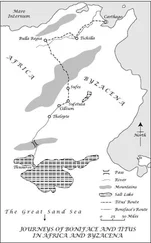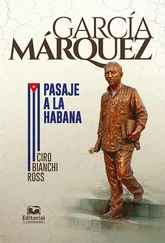Ross Laidlaw - Theodoric
Здесь есть возможность читать онлайн «Ross Laidlaw - Theodoric» весь текст электронной книги совершенно бесплатно (целиком полную версию без сокращений). В некоторых случаях можно слушать аудио, скачать через торрент в формате fb2 и присутствует краткое содержание. Жанр: Исторические приключения, на английском языке. Описание произведения, (предисловие) а так же отзывы посетителей доступны на портале библиотеки ЛибКат.
- Название:Theodoric
- Автор:
- Жанр:
- Год:неизвестен
- ISBN:нет данных
- Рейтинг книги:3 / 5. Голосов: 1
-
Избранное:Добавить в избранное
- Отзывы:
-
Ваша оценка:
- 60
- 1
- 2
- 3
- 4
- 5
Theodoric: краткое содержание, описание и аннотация
Предлагаем к чтению аннотацию, описание, краткое содержание или предисловие (зависит от того, что написал сам автор книги «Theodoric»). Если вы не нашли необходимую информацию о книге — напишите в комментариях, мы постараемся отыскать её.
Theodoric — читать онлайн бесплатно полную книгу (весь текст) целиком
Ниже представлен текст книги, разбитый по страницам. Система сохранения места последней прочитанной страницы, позволяет с удобством читать онлайн бесплатно книгу «Theodoric», без необходимости каждый раз заново искать на чём Вы остановились. Поставьте закладку, и сможете в любой момент перейти на страницу, на которой закончили чтение.
Интервал:
Закладка:
his eyes are upon you
The idea that the Ostrogoths’ natural unruliness could be curbed by the thought that Theoderic was watching them from afar was suggested by some lines in Ennodius’ Panegyricus Dictus Theoderico . Just before the commencement of the battle against the Bulgars, Pitzia reminds the Goths that the eyes of Theoderic are upon them, and tells them to think of Theoderic should the battle ever seem to be going against them, when their fortunes will surely revive. Gibbon reinforces Ennodius: ‘in the fields of Margus the Eastern powers were defeated by the inferior forces of the Goths and Huns. . and such was the temperance with which Theoderic had inspired his victorious troops, that, as their leader had not given the signal for pillage, the rich spoils of the enemy lay untouched at their feet’. The phrase ‘Big Brother is watching you’ springs to mind; in this context however, its significance is entirely benevolent.
slaughtered to a man
Moorhead ( Theoderic in Italy ) states that ‘In 514 Theoderic. . put to death a man described as Count Petia’, and goes on to say that ‘there were two, and just possibly three, counts with similar names, but it is not at all clear whether the general of 504-5 was put to death in 514’. This uncertainty, plus the fact that the records are silent regarding Pitzia after 504-5 (assuming that he was not ‘Count Petia’), allowed me to have him die fighting in a desperate last stand against the Bulgars.
Chapter 29
the ‘navicularii’
The guild reached its peak under the late empire, during the fourth century, its security and continuity set in concrete, thanks to imperial legislation. We know that trade between Italy and the Eastern Empire, also with southern Gaul and parts of the Mediterranean littoral of Spain, continued (doubtless considerably attenuated) after the fall of the West. I’ve therefore hazarded the assumption that — being so firmly established even towards the West’s last days — the shippers’ guild survived that empire’s demise, a supposition reinforced by the fact that under Odovacar and Theoderic Roman administration and institutions continued largely uninterrupted in Italy.
Chapter 30
‘One of Theoderic’s “new men”’
Of a sequence of five men appointed to the post of City Prefect after 506, not one became consul or was from any of the great families of Rome. From this time, when making key appointments Theoderic turned decisively towards ‘ novi homines ’, men who were court apparatchiks, not aristocrats. Moorhead (in Theoderic in Italy ) says, ‘it is possible that his [Theoderic’s] change of policy was connected with his final decision against Laurentius, who enjoyed widespread senatorial support in 507; perhaps a degree of punishment, and conceivably fear, were [ sic ] involved’.
to strengthen Rome’s defences
Refurbishment of Rome’s moenia at this time is confirmed by Cassiodorus (in Variae ), who also records the burning of crops and the attack on Sipontum by the Eastern naval expedition.
a massive warship-building programme
‘Their [the Eastern expedition’s] retreat was possibly hastened by the activity of Theoderic; Italy was covered by a fleet of a thousand light vessels, which he constructed with incredible despatch’ (Gibbon).
The shipyards of. . Tergeste
Dalmatia, which then included Trieste (Tergeste), was annexed by Odovacar to his kingdom of Italy, following the death of Nepos.
friendly overtures from Theoderic
A diplomatic mission to the Burgundians had been accompanied by prestigious gifts: a sundial and a water-clock (see Chapter 27).
this part of Italy’s called Magna Graecia
Between the eighth and sixth centuries BC, a number of flourishing Greek colonies (Metapontum, Tarentum, etc.) was established in southern Italy, which thus (by the time of Pythagoras, according to Polybius) acquired the name Magna Graecia. Arriving at Crotona c. 530 BC, the great philosopher and mathematician soon exerted supreme influence in Megale Hellas, as the region was called in Greek.
Like ancient legionaries
Simon MacDowall’s Twilight of the Empire (one of the splendid Osprey series about armies and campaigns) contains graphic descriptions, together with illustrations (based on contemporary evidence) of the appearance of sixth-century East Roman soldiers. Exchange their oval shields for long rectangular ones, and they would be practically indistinguishable from legionaries of the classical period. The example of orders (still given in Latin in East Roman armies at this time) in the text, is taken from Mauricius’ Strategikon , a sixth-century training manual.
The seaboard of Apulia and then Calabria
Calabria, the ancient ‘heel’ of Italy, has since (at some time prior to the eleventh century) moved westwards, to become its ‘toe’! The ‘toe’ was anciently the region known as Bruttium.
along with the title of Augustus
‘Honorary consul’ was an established title, but ‘honorary emperor’ would be a constitutional absurdity. ‘Augustus’ admits of only one interpretation: emperor; and that Clovis certainly was not, in any sense except, perhaps, the complimentary. Yet Gregory of Tours (in Historia Francorum, c . 560) is unequivocal: ‘from that day [i.e., Clovis’s victory over the Visigoths] he was called consul or augustus’. Procopius probably had these titles in mind when he says (in Opera ) that the Franks looked for Anastasius’ ‘seal of approval’. The conundrum is perhaps best explained by seeing the titles as ammunition in Anastasius’ campaign to put Theoderic very firmly in his place after the king’s Pannonian/Moesian adventure in 504 and 505, a campaign of which the naval expedition against south Italy formed a major part. In this context the award of the title ‘Augustus’ to Clovis can be interpreted as constituting a snub to Theoderic, designed to puncture any imperial pretensions the king may have entertained, reminding him that only Anastasius had the power to dispense such appellations. There can be no doubt that Anastasius intended ‘Augustus’ to be purely titular. Yet it seems rather to have gone to Clovis’ head. Gregory describes him wearing purple and a diadem , and, in imitation of Emperor Constantine, dedicating a church to the Holy Apostles (viz. Saints Peter and Paul).
his own consular nominee
This has to be yet another example of Anastasius’ determination to punish Theoderic for invading imperial territory. The sole consul for 507 was Anastasius himself, making him consul for the third time.
Chapter 31
once more come under Ostrogothic rule
The only source that I can find that disagrees with this is Wolfram’s History of the Goths wherein he says, ‘Probably in 510 Theoderic. . ceded to Byzantium. . the eastern part of Pannonia Sirmiensis’. But Burns (in A History of the Ostrogoths ) states, ‘Sabinianus accepted the restoration of Ostrogothic control at Sirmium, and the Ostrogoths gave up any designs on expanding their power beyond Sirmium’ — a conclusion backed up by maps of Theoderic’s realm, as shown in historical atlases.
the wars that turned out happily for him
From a letter of Theoderic to Clovis, quoted by Cassiodorus (in Variae ).
a father-figure to all Germanic peoples
Theoderic emerges as a heroic figure, of immensely prestigious status among Germanic peoples, in early mediaeval legends such as those appearing in the Hildebrandslied , which dates from the time of Charlemagne.
Читать дальшеИнтервал:
Закладка:
Похожие книги на «Theodoric»
Представляем Вашему вниманию похожие книги на «Theodoric» списком для выбора. Мы отобрали схожую по названию и смыслу литературу в надежде предоставить читателям больше вариантов отыскать новые, интересные, ещё непрочитанные произведения.
Обсуждение, отзывы о книге «Theodoric» и просто собственные мнения читателей. Оставьте ваши комментарии, напишите, что Вы думаете о произведении, его смысле или главных героях. Укажите что конкретно понравилось, а что нет, и почему Вы так считаете.












